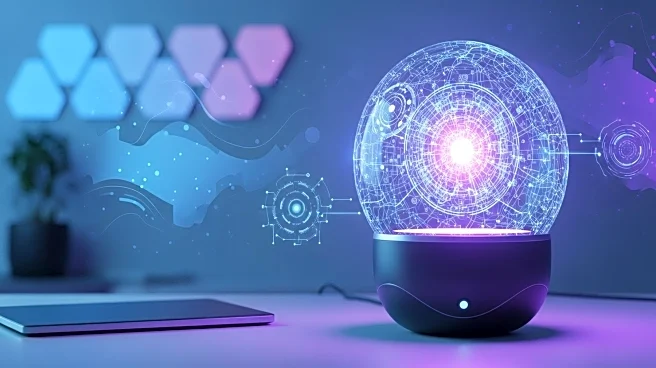What's Happening?
Slack is testing a significant update to its Slackbot, transforming it into an AI assistant designed to enhance productivity within workspaces. The upgraded Slackbot will appear as an icon next to the search bar, allowing users to enter prompts for personalized assistance. This AI-powered Slackbot can sift through messages, gather information from various Slack channels, and create custom plans tailored to individual workspaces. It can also perform complex tasks such as organizing product launch plans and creating social media campaigns using a brand's tone. Additionally, the Slackbot can search through a workspace using natural language, making it easier to locate documents and coordinate meetings via Microsoft Outlook and Google Calendar. The update is currently being tested with Salesforce employees and other customers, with plans to roll out the feature to all users by the end of the year.
Why It's Important?
The transformation of Slackbot into an AI assistant represents a significant advancement in workplace technology, potentially increasing efficiency and productivity for businesses using Slack. By integrating AI capabilities, Slackbot can streamline tasks that typically require manual effort, such as document searches and meeting coordination. This development could lead to reduced time spent on administrative tasks, allowing employees to focus on more strategic activities. The AI assistant's ability to personalize assistance based on user interactions and workspace data could also improve user experience and satisfaction. As companies increasingly rely on digital tools for collaboration, the enhanced Slackbot could become a vital component in optimizing workflow and communication.
What's Next?
Slack plans to introduce the AI-upgraded Slackbot to all users by the end of the year, following successful testing with Salesforce employees and other customers. As the rollout progresses, businesses may need to evaluate the impact of AI integration on their operations and consider potential adjustments to their workflow processes. Stakeholders, including IT departments and business leaders, will likely monitor the implementation closely to ensure data security and privacy, given the AI's reliance on workspace data. Additionally, companies may explore further customization options to maximize the benefits of the AI assistant for their specific needs.
Beyond the Headlines
The integration of AI into Slackbot raises important considerations regarding data privacy and security. Slack has assured users that its AI features operate through Amazon Web Services' virtual private cloud, ensuring that no data leaves the firewall or is used in model training. This commitment to data protection is crucial as businesses increasingly adopt AI technologies. Furthermore, the development highlights the growing trend of AI-driven tools in workplace environments, which could lead to broader discussions on the ethical use of AI and its impact on employment and job roles.









